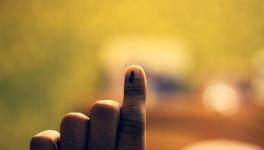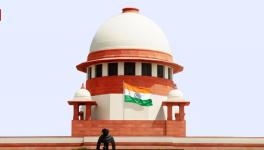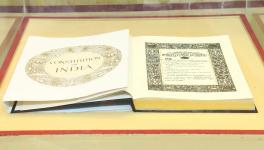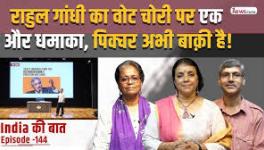The Privacy Judgement: From Right to Life to Body Parts

The August 24 Supreme Court verdict declaring privacy a fundamental right has been hailed as historic. But for former Attorney General (AG) Mukul Rohatgi, the judgement is an “unsatisfactory resolution”.
This statement should not come as a surprise, especially after the arguments Rohatgi made earlier, during the Aadhaar hearings.
The hearings in the Supreme Court challenged the constitutional validity of making Aadhaar mandatory for filing income tax returns. Rohatgi argued before the Court that citizens do not have an absolute to right over their body parts, and that the arguments in favour of bodily integrity were “bogus”.
“The concept of absolute right over one's body was a myth and there were various laws which put restrictions on such a right,” Rohatgi told the court in the context of the fingerprints and iris scans required for Aadhaar or the Unique Identification (UID) number.
Rohatgi’s argument was rightly slammed as unacceptable in the mainstream media. But it was in line with Rohatgi’s stance on earlier occasions, particularly after the outrageous incident of the Army in Kashmir using a young boy as a human shield.
It is possible to draw a close parallel between Rohatgi’s argument over the right to one’s body and the argument made by another AG, Niren De in the Habeas Corpus petitions during the Emergency -- that people's right to life could not be enforced. This came up in the Supreme Court in 1976.
During the Emergency, a group of petitioners who were detained under the preventive detention laws – the Maintenance of Security Act (MISA) -- approached various High Courts in the country for relief under the writ of Habeas Corpus. The case was heard by a five-judge bench, comprising the then Chief Justice of India AN Ray, and Justices HR Khanna, YV Chandrachud, H M Beg and PN Bhagwati.
The issue before the court was whether the President’s order under Article 359(1) of the Constitution and the proclamation of Emergency suspended the right to life and personal liberty of the citizen under Article 21.
Niren De, who was then Attorney General, made the case that though all fundamental rights existed and could not be abrogated under the Emergency, they could not be enforced either. “Even if life was to be taken illegally during the Emergency, the courts are helpless”, said De. As long as the Emergency lasted, there was no remedy.
Justice HR Khanna asked, “Article 21 also contains (right to) life. Would government arguments extend to it also?" Justice Khanna further asked that if a policeman killed a person for enmity and not for the state, was there no remedy?Four out of the five judges agreed with De and ruled on April 28, 1976, that the right to life and personal liberty under Article 21 was not enforceable during Emergency.
The August 24 judgement overruled the ADM Jabalpur judgement and this was long due. However, it should be noted that the court invoked the same Article 21 -- protection of the right to life and personal liberty -- and extended it to declare that privacy was a fundamental right protected under Article 21. “The judgments rendered by all the four judges constituting the majority in ADM Jabalpur are seriously flawed,” the privacy judgement states. Justice HR Khanna was the sole dissenting judge, whose judgement was held to be the correct one by this Constitutional Bench.
“Life and personal liberty are inalienable to human existence... Neither life nor liberty bounties conferred by the state nor does the Constitution create these rights.”
Disclaimer: The views expressed here are the author's personal views, and do not necessarily represent the views of Newsclick.
Get the latest reports & analysis with people's perspective on Protests, movements & deep analytical videos, discussions of the current affairs in your Telegram app. Subscribe to NewsClick's Telegram channel & get Real-Time updates on stories, as they get published on our website.
























